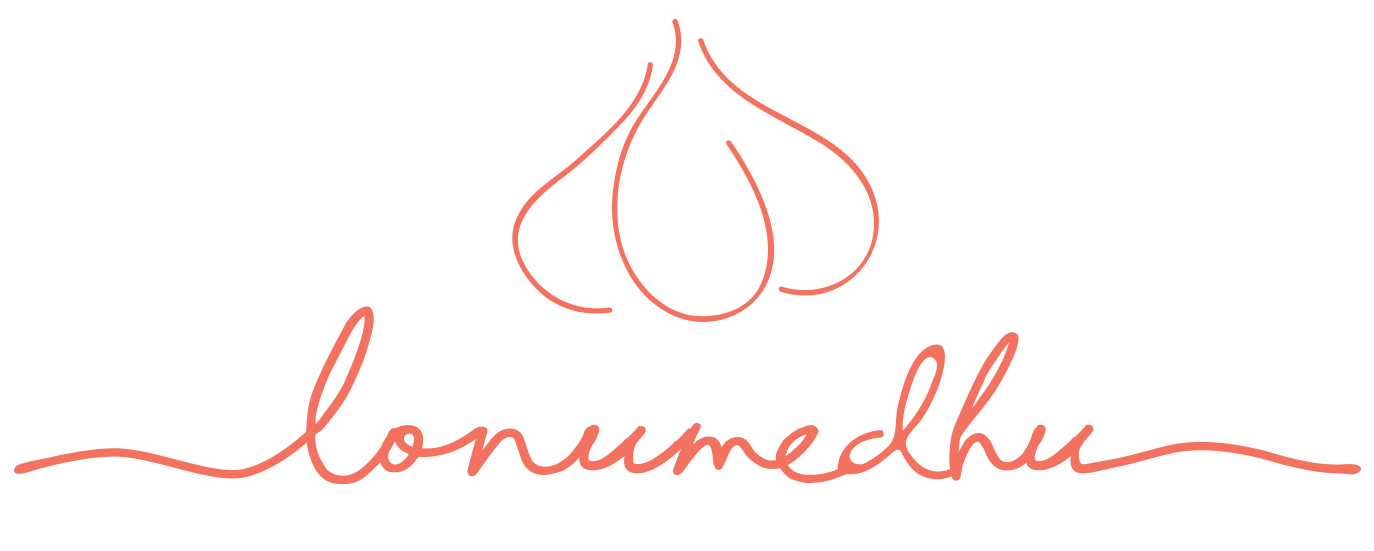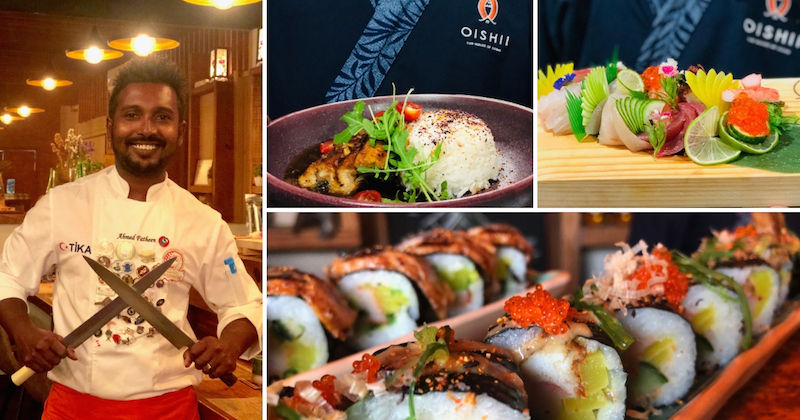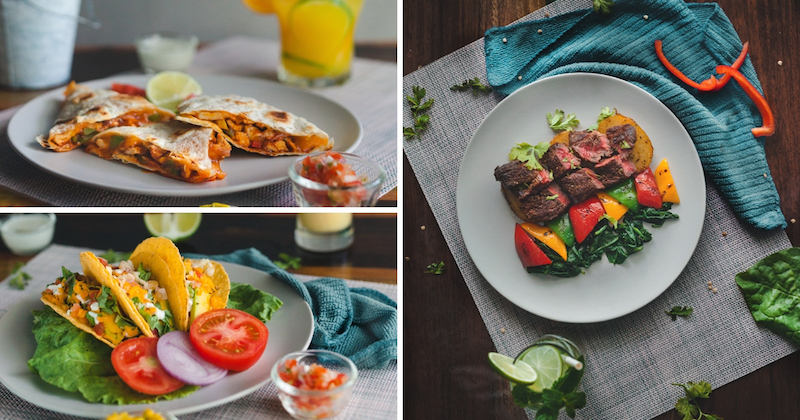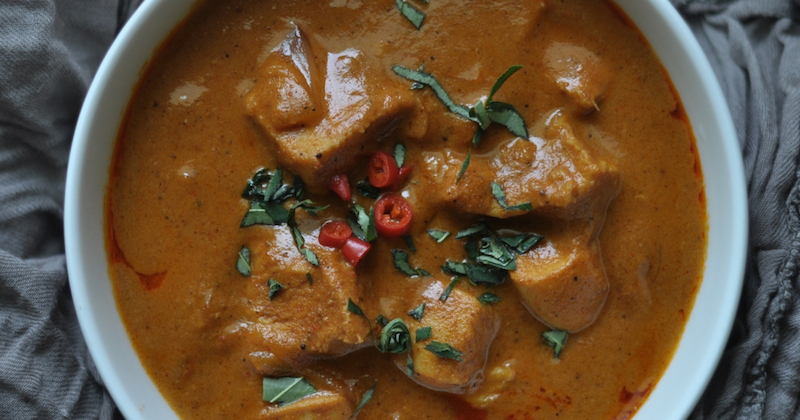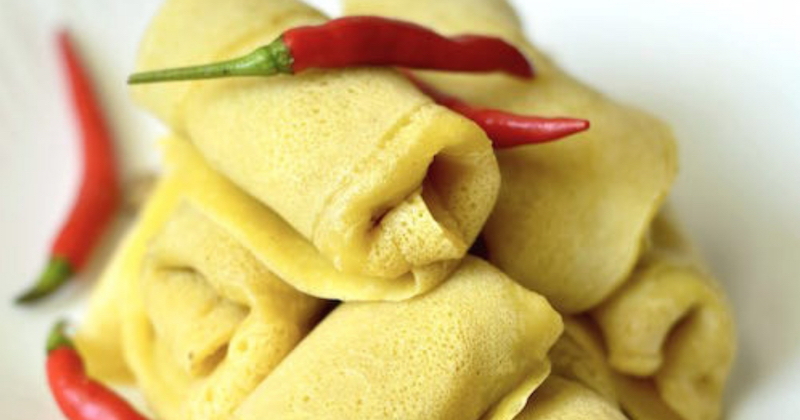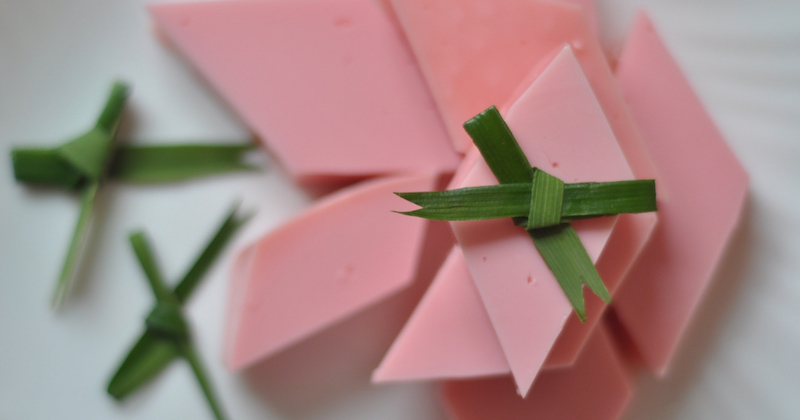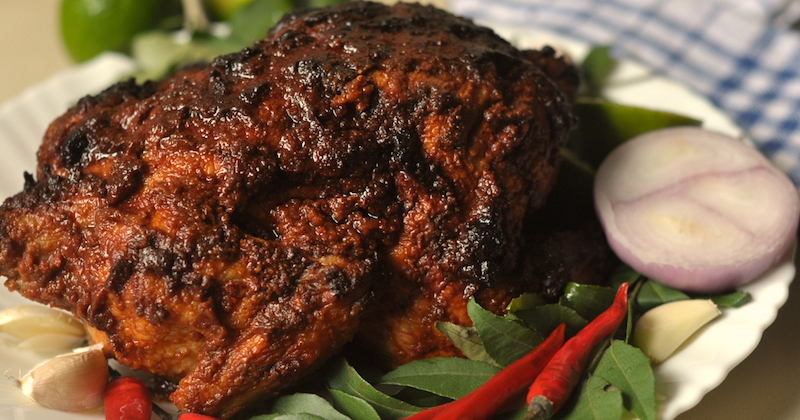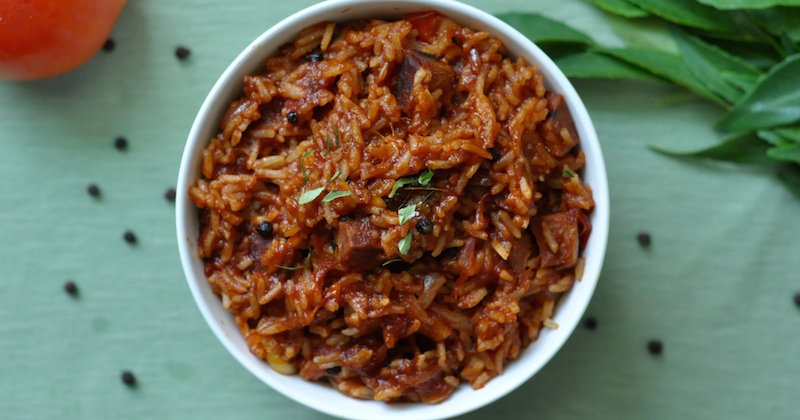Conversing Coffee with Meraki’s Mabrouq
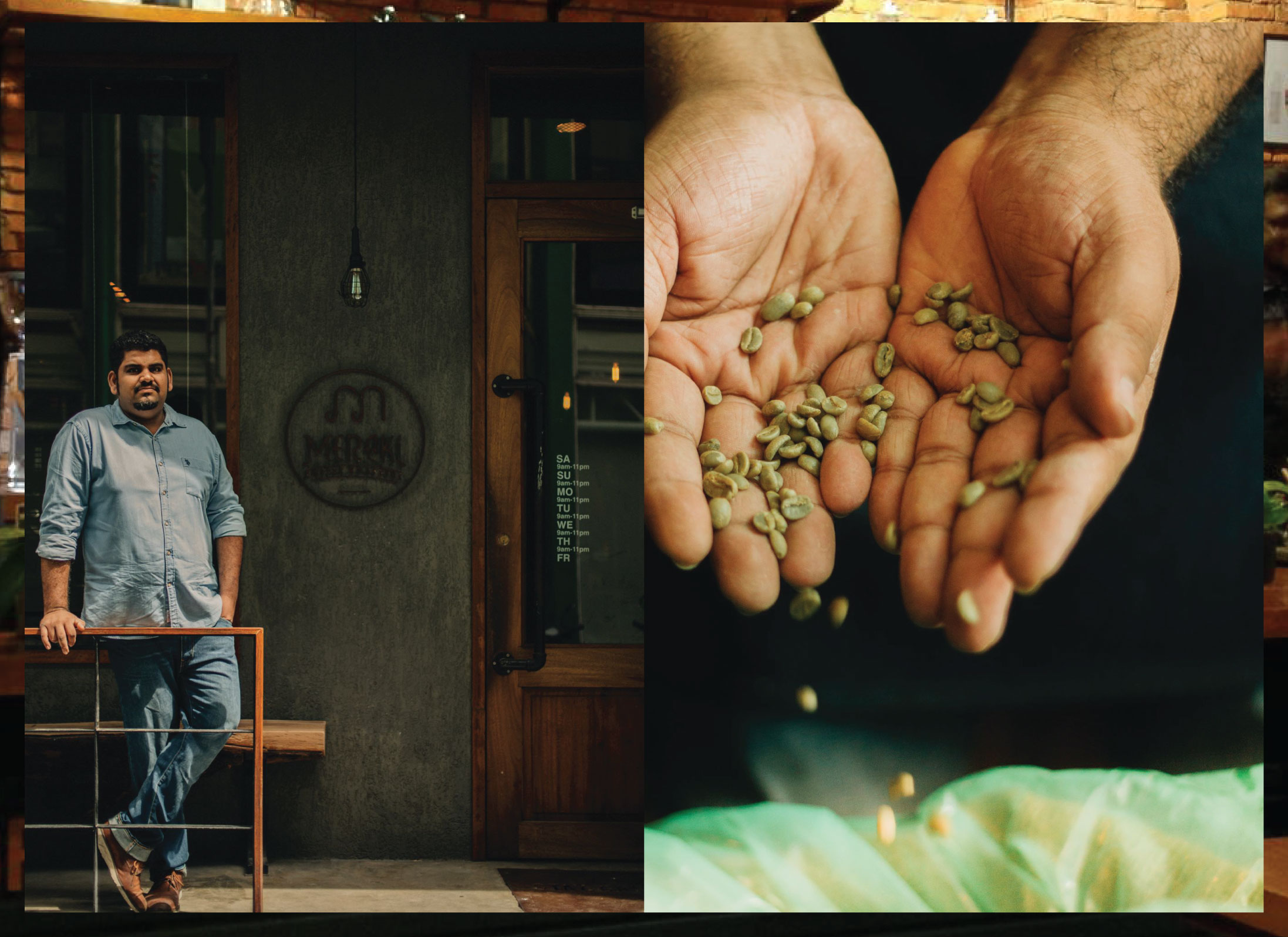
Mabrouq and coffee, that’s a really long story. Mabrouq Azeez had just finished school when whole bean coffees such as Lavazza, Segafredo and illy arrived in Male’. Fuelled by his newfound freedom, Mabrouq along with his friends, frequented the cafés that were popping up all over Male’. They were enjoying the emerging coffee culture and using coffee as a reason to come together.
Now, Mabrouq runs the trendy Meraki Coffee Roasters. But between his first few sips, discovering a love for the taste of good coffee, and the opening of Meraki, several things happened that glued Mabrouq to his coffee: Mabrouq left to study in Thailand, and while in Thailand, his recurrent visits to the Starbucks outlets allowed him some introductory observations regarding the varying tastes of coffees. A busy trimester of basketball practice and lessons required Mabrouq to wake up early, and he invested in a French press to keep himself awake throughout the day, and consequently began Mabrouq’s coffee grinding at home. And then there was his internship at a student run café that led him to taste a very decisive cup of coffee. Coming from the Maldives, Mabrouq was naturally the coffee guy, and wanting to break the record for the highest coffee sales, Mabrouq delved into the study of coffee. Mabrouq has also briefly lived in Indonesia, an origin country for coffee, and there; he visited farms and helped roasters roast their coffee.
On a blazing hot afternoon, Lonumedhu visited Mabrouq at the cool and comfortable Meraki, and following is an excerpt of the conversation that was had, about everything coffee and some things about food.
Lonumedhu: So, let’s talk about that definitive moment between you and coffee?
Mabrouq: I was doing research for the student café. The specialty coffee movement had just started in Thailand and I accidentally discovered this one little café. They don’t use any electronic tools to make coffee. In fact they still hand grind their coffee. And I was very intrigued by the idea. There’s this one guy and I started learning from him. I think I was driven by curiosity. I still remember my first cup at that café. If there was a pivotal point between myself and my perception of coffee, this was it; it was like a really indulgent scene from a movie, like a scene in which someone drinks something while really enjoying it.
Lonumedhu: I am curious about what you drink in the morning. Do you have a coffee ritual or something like that?
Mabrouq: These days I usually just come here (to Meraki) in the morning and brew the coffee myself. But before that, I had a morning routine in which I grind my coffee at home.
Lonumedhu: That must be relaxing.
Mabrouq: Yes I think that was part of my routine to wake up. Get out of bed, grind it, make the coffee, take a shower, come out and enjoy it.
Lonumedhu: Wouldn’t the coffee be somewhat cold by then?
Mabrouq: Yes, I don’t like coffee when it’s super hot. I need it to go down to something like sixty degrees Celsius. Technically speaking that’s the best temperature to enjoy coffee.
Lonumedhu: Why’s that?
Mabrouq: For example, in French cooking, they won’t serve food unless it goes down to sixty degrees. That’s because when food’s temperature comes nearer to the body temperature, the tongue can perceive it more. So you get the complete taste when it cools down.
Lonumedhu: So, how much coffee do you drink during a day?
Mabrouq: I have my first cup of coffee in the morning, which usually is a delicious filter coffee. I have one later in the day that’s more experimental. Everything else in between is just quality control or experiments; just small sips of coffee. I think by the end of a day, I must have had four cups of coffees worth in average.
Lonumedhu: I assume you’ve visited a lot of coffee farms. Shall we talk about that?
Mabrouq: We get our coffee from very small-scale farms. Either a family or a group of people from a village picks the coffee, and the coffee goes to collectives or corporative societies. It takes about three years to grow a coffee plant and it bears the cherries between the third and the seventh year, so a lot of care goes into it.
Lonumedhu: Cherries?
Mabrouq: Yes coffee comes in a fruit, it’s red, and it’s really a cherry. The biggest problem with coffee is that different cherries will ripen at different times even on the same branch. Skilled farmers usually go around the farm everyday and they pick single cherries. That’s why specialty coffee can be very expensive and it’s different from a commercial farm where they strip the whole branch.
Lonumedhu: Perhaps our readers might want to know a little bit about the history of coffee. Shall we talk about that?
Mabrouq: We know for sure that coffee came from either Yemen or Ethiopia. This story is not verified, but the overwhelming majority believes in the story of this goat herder called Khaldi. He noticed his goats being energetic after eating these coffee cherries and he noticed that the cherries had the same effect on him as well. So he presented the coffee beans to the community leaders, and believing the beans to be evil, they threw the beans into the fire. The beans started to pop and that was the first time coffee was roasted, unintentionally.
Lonumedhu: That’s an interesting story, are there any more?
Mabrouq: Some interesting accounts about coffee, for example in the 1500s, in Turkey, a husband not being able to provide a wife with enough coffee was a good reason to file for divorce. In Saudi Arabia, also around that time, a king almost got overthrown because he was trying to ban coffee in mosques.
Lonumedhu: Do you cook?
Mabrouq: I actually cook a lot of different food. Mostly these are things I miss (because Male' does not offer much variety). These range from Mexican, American, to Indian, to Thai, to Italian, to my own interpretations of things. I also like to experiment a lot with heat transfer in food and how that effects taste and texture. These follow my approach to coffee; systematic and scientific. I’m also really interested in Maldivian cooking, and this is something I have been researching and experimenting on.
Lonumedhu: So, last question, what are some good things to eat with a coffee?
Mabrouq: I think generally things to avoid are spicy food, oily food, anything bready will be nice because it can help you keep you palate clean, cakes, chocolate works really well, lime, lemon, just not something that’s so overwhelming that will overwhelm your palate.
Lonumedhu: This really was an interesting conversation. Thank you so much for meeting with us.
* Meraki celebrated 2018's International Coffee Day by making a really cool video about Women in Coffee, featuring the young women who work at Meraki. So head this way if you want to have a look --> Meraki: Women in Coffee
New on Lonumedhu: Recipes in Dhivehi
You might also be interested in:
About Lonumedhu
Lonumedhu is about eating great food right here in the Maldives.
Our easy to follow recipes use locally available ingredients.
In our blog you will find food news, interviews with chefs and cooks, useful information about eating out and other foodie reads.
Contacts
© Lonumedhu.com 2017-2026. All rights reserved. No part of this website may be reproduced without the written permission of the publisher.
Advertisers
Lonumedhu.com has partnered with Qualia Pvt Ltd, a publishing & marketing agency, for its desktop and mobile advertising.
Advertising enquiries should be directed to (960) 987 4396 or marketing.sales@lonumedhu.com.
